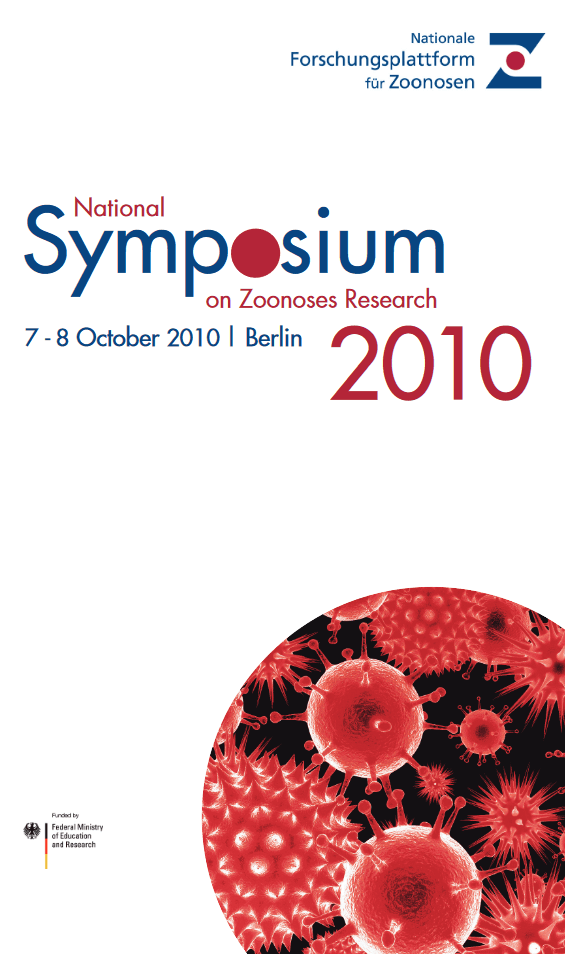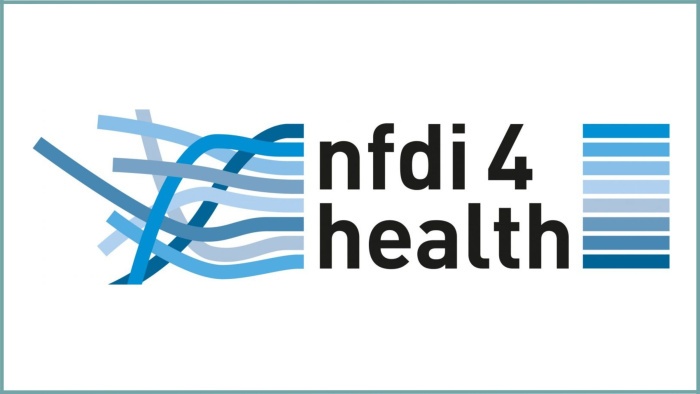Networks Sow and Stay One Step Ahead of Evolution

© bonezboyz - stock.adobe.com
Old and new infectious diseases, whose pathogens can be transmitted between animals and humans – so-called zoonoses – will continue to pose a perpetual threat to humanity in the future. In order to be prepared and stay one step ahead of evolution as much as possible, continuous research and collaboration among scientists across disciplines, locations, and national borders are necessary, and appropriate support for young researchers is indispensable. The National Symposium for Zoonotic Research, which will take place on October 7th and 8th, 2010, in Berlin, therefore pursues two goals this year: firstly, it showcases the diversity of zoonotic research in topic-specific sessions, and secondly, it specifically targets young scientists. In addition to high-profile keynote speakers, these young scientists, in particular, will present the results of their research.

The thematic spectrum of the symposium ranges from diagnostic methods to therapeutic approaches to zoonoses in wildlife. The opening speeches of the three ministries involved in promoting zoonotic research and three plenary lectures, including one by Professor Dr. Reinhard Burger, President of the Robert Koch Institute (RKI), who will review the H1N1 pandemic ("swine flu") of the past year, will kick off on October 7, 2010. At the end of the symposium, distinguished European scientists, including Professor Dr. Anna Papa-Konidari from Thessaloniki, will speak on the latest findings regarding the current outbreak of West Nile fever in Greece.
By preferentially selecting contributions from young scientists for presentation as lectures or posters, the National Research Platform for Zoonoses, which hosts the symposium, provides a forum for young researchers to discuss their results with experienced scientists and – this is a particular concern – to build a collegial network early in their careers and cultivate cooperative research from the outset as a natural way of working. For the first time this year, a poster prize will also be awarded.
At a Glance
National Symposium for Zoonotic Research 2010
Date: October 7-8, 2010
Start: October 7, 2010, 11 am-1 pm
Conference Language: English
Venue: Best Western Premier Hotel Steglitz International, Albrechtstraße 2, 12165 Berlin, www.si-hotel.com
Registration: online at www.zoonosen.net
Participation Fees: none
Contact: National Research Platform for Zoonoses
Phone: 030 – 31 01 19 70 | www.zoonosen.net
Press Contact
Antje Schütt
Phone: 030 – 31 01 19 56
Background
National Research Platform for Zoonoses
Research on zoonoses—that is, research on infectious diseases that can be transmitted between animals and humans—takes place in Germany at many different locations and institutions: at universities and federal institutes, in small research groups, and in large consortia. The knowledge and experience of human and veterinary medical professionals, as well as other natural scientists, are of great importance. Therefore, it is necessary for all researchers in this field to work closely together.
The National Research Platform for Zoonoses, as an infrastructural and scientific organization funded by the Federal Ministry of Education and Research, enables and supports this networking. The platform's task is to link basic biomedical research more closely with human and veterinary medicine in order to make zoonotic research in Germany more effective.
The National Research Platform for Zoonoses is a joint project of the Institute for Molecular Virology, Center for Molecular Biology of Inflammation, Westfälische Wilhelms-Universität Münster, the TMF – Technology and Methods Platform for Networked Medical Research, Berlin, and the Institute for Novel and Emerging Infectious Diseases, Friedrich-Loeffler-Institut, Greifswald - Insel Riems.
Research Consortia on Zoonoses
The most important pillar and focal points for the development of the National Research Platform for Zoonoses are the nine research consortia on zoonoses, which have been and are funded by the Federal Ministry of Education and Research since 2007. The funding initiative was a result of a cross-departmental initiative of the federal government, which culminated in a joint research agreement in 2006 among the three federal ministries for education and research (BMBF), health (BMG), and food, agriculture, and consumer protection (BMELV).
FBI-Zoo – Research Consortium for Foodborne Zoonotic Infections in Humans
BOTULINOM – Research Consortium on Botulism
ZooMap – Research Consortium for the Study of Mycobacterium avium subsp. Paratuberculosis
Zoonotic Chlamydia Research Consortium
Q-Fever Research Consortium
TOXONET01 – Research Consortium on Toxoplasmosis
Arbovirus Infections in Germany Research Consortium
SARS Research Consortium
FluResearchNet – Research Consortium for the Study of Influenza A Viruses
Since 2010, the BMBF has funded four additional new research consortia, including two on neglected diseases and two on antibiotic resistance:
VibrioNet – Climate Warming and the Emergence of Seafood- and Waterborne Vibrioses
LYSSAVIRUSES Research Consortium – A Potential Re-emerging Public Health Threat
RESET Research Consortium – ESBL and Fluoroquinolone Resistance in Enterobacteriaceae
MedVet-Staph Research Consortium – Interdisciplinary Research Network on the Zoonotic Impact of Staphylococcus aureus/ MRSA
Further Information


